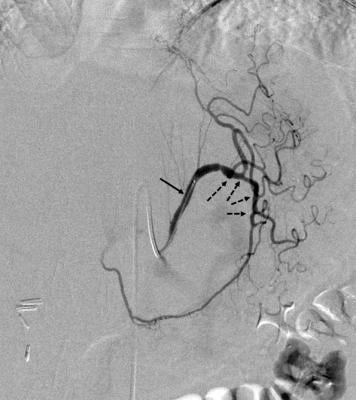
May 30, 2014 — New research has found that bariatric surgery is an effective way to control weight in morbidly obese patients who are at risk for developing atrial fibrillation (AF). Bariatric or weight loss surgery is an operation on the stomach that limits food intake and is typically recommended for patients who are unable to lose weight on their own through diet and exercise.
The first study of its kind to look at the relationship between AF and bariatric surgery on a large patient population was presented at Heart Rhythm 2014, the Heart Rhythm Society’s (HRS) 35th annual scientific sessions.
According to the Centers for Disease Control and Prevention, more than two-thirds of the adult population in the United States is considered to be overweight or obese. Obesity is a known risk factor for arrhythmias like AF, and other risk factors for AF include smoking, high blood pressure and high cholesterol. AF is the most common arrhythmia and affects more than 2.7 million American adults. It is characterized by a rapid and irregular heartbeat when the top chambers of the heart (the atria) quiver (fibrillate) erratically, sometimes faster than 300 times per minute.
“Obesity has become an epidemic in our culture and prevention efforts are more important now than ever,” said Yong-Mei Cha, M.D., FHRS, professor of medicine at Mayo Clinic. “Bariatric surgery is a preventative measure that obese patients may choose to take, and our study shows that the surgery helps them not only lose weight, but also reduces their risk of developing a serious cardiac condition like AF. It is important to continue the conversation about how to help prevent this epidemic from becoming even more widespread.”
The retrospective study was conducted in 438 patients with a body mass index (BMI) of 40 or higher and identified as good candidates for bariatric surgery. Of these patients, 326 elected to undergo surgery for weight reduction and 112 were controls who were managed medically. The diagnosis of AF was documented by electrocardiogram (ECG) or ambulatory monitors and metabolic profiles were collected at baseline and follow-up.
The baseline BMI was different in the patients that underwent surgery versus those who did not have surgery (46.9 vs. 43.2kg/m2). The prevalence of AF at baseline was not significantly different between the two groups (surgical 3.7 percent vs. control 4.5 percent p=0.63) at baseline. After a mean follow-up duration of 7.2±3.7 years, new onset of AF occurred in 3.1 percent of the surgical group, significantly lower than 12.5 percent (p<0.01) in the medically treated group. Additionally, the surgical group had a significant reduction in BMI and improvement in metabolic profile compared to the control group.
For more information: www.hrsonline.org


 January 05, 2026
January 05, 2026 









